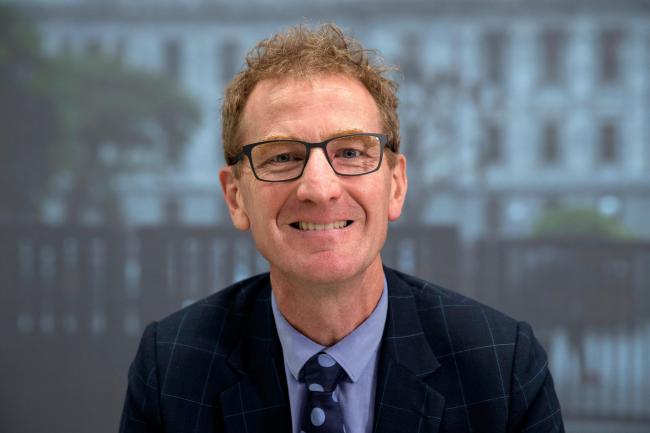By Ben Kerrigan-
China, Iran and Russia are engaged in foreign interference in New Zealand, the nation’s domestic intelligence agency said Friday after making its threat assessment report public for the first time.
The striking revelation casts a shadow over New Zealand’s political landscape, and this seismic disclosure by Director-General of Security Andrew Hampton has far-reaching implications that transcend national boundaries, posing questions about the extent of foreign influence, diplomatic repercussions, and the newfound era of transparency.
The unveiling of the SIS threat assessment report has pulled back the curtains on a shadowy realm of geopolitical intrigue. While foreign interference is not a new concept, the specificity of the allegations involving China, Iran, and Russia reverberates on the international stage. The implications of these allegations extend beyond New Zealand’s borders, shaking the foundations of diplomatic relations and global power dynamics.
China’s increasing influence on a global scale has raised eyebrows and concerns in recent years, and New Zealand is no exception. The SIS report’s assertion that China has been engaging in foreign interference highlights the extensive efforts taken by the nation to expand its influence beyond its borders. With New Zealand being an important player in Asia-Pacific relations, China’s alleged meddling could have profound implications for regional stability and the balance of power.
The alleged involvement of Iran adds yet another layer of complexity to the situation. Iran’s geopolitical interests, often at odds with Western powers, have led to concerns about its activities on the international stage. The SIS report’s assertion that Iran is engaged in foreign interference prompts questions about its motivations and long-term goals in New Zealand. As the Middle East remains a hotbed of tensions, the extent of Iran’s reach in the Asia-Pacific region warrants close attention.
Russia’s historical role as a global influencer is a topic of perennial debate, and the SIS report’s mention of its alleged interference raises echoes of its Cold War-era tactics. The allegations underscore the enduring challenges posed by Russia’s pursuit of strategic objectives through covert means. In an age of technological sophistication and interconnectedness, the extent of Russia’s alleged meddling poses significant questions about the ability to safeguard national sovereignty.
The decision by the SIS to make its threat assessment report public speaks to a broader shift in the relationship between transparency and diplomacy. Director-General of Security Andrew Hampton’s statement that the SIS sees value in sharing insights publicly signals a recalibration of how nations address the specter of foreign interference. However, this newfound openness also raises concerns about diplomatic fallout and potential disruptions in bilateral relations. Striking the delicate balance between transparency and the protection of national interests is a challenge that New Zealand and other nations will grapple with in an evolving landscape.
The revelation of alleged foreign interference underscores the need for nations to strengthen their defenses against such activities. In an era of hybrid warfare and digital interconnectedness, the mechanisms of influence have grown more sophisticated, necessitating robust countermeasures. New Zealand’s move to shed light on the issue serves as a clarion call for heightened vigilance, cooperation, and innovation in safeguarding national sovereignty.
The implications of the SIS report’s allegations ripple far beyond New Zealand’s shores. The interconnectedness of the modern world means that foreign interference in one nation can have cascading effects on regional stability, trade relations, and global security. The allegations involving China, Iran, and Russia should prompt other nations to reevaluate their own vulnerabilities and establish a unified front against the erosion of democratic processes.
The SIS threat assessment report’s revelations cast a spotlight on the world of foreign interference, a realm traditionally shrouded in secrecy. New Zealand’s decision to bring these allegations to light challenges the status quo and signals a shift toward transparency. As the implications reverberate through diplomatic circles, the global community must grapple with the evolving dynamics of influence, safeguarding the principles of democracy, and fostering international cooperation in the face of mounting challenges. The SIS report’s release marks a pivotal moment in the ongoing struggle to unmask the veiled forces that seek to shape the destiny of nations from the shadows.
In the report, Director-General of Security Andrew Hampton (pictured)said the Security Intelligence Service sees enormous value in sharing more of its insights publicly.
The agency had previously taken a secretive approach. It decided to change course after it and other agencies were criticized for focusing too much on the perceived threat from Islamic extremism and being blindsided when a white supremacist shot and killed 51 worshippers at two Christchurch mosques in 2019.
In the report, the agency says the most notable case of foreign interference is the continued targeting of the nation’s diverse Chinese communities by people with links to the intelligence arm of China’s ruling Communist Party.
It said China’s efforts to advance its political, economic and military involvement in the Pacific was driving strategic competition. The agency said it was aware and concerned about ongoing Chinese intelligence activity “in and against New Zealand.”
The report said Iran had been engaged in societal interference by monitoring and reporting on Iranian communities and dissident groups in New Zealand.
The agency linked Russia’s war in Ukraine to a number of problems, including increased geopolitical competition, supply chain disruptions, and efforts to spy on other countries and seed disinformation.
“Russia’s international disinformation campaigns have not targeted New Zealand specifically, but have had an impact on the views of some New Zealanders,” the report found.
Domestically, the agency found that violent extremism continued to pose a threat. The report said there were likely some people in New Zealand with the intent and capability to carry out domestic terror attacks, although the agency wasn’t aware of any specific or credible plans.
“We continue to see inflammatory language and violent abuse online targeting a wide variety of people from already marginalized communities,” the report found.




